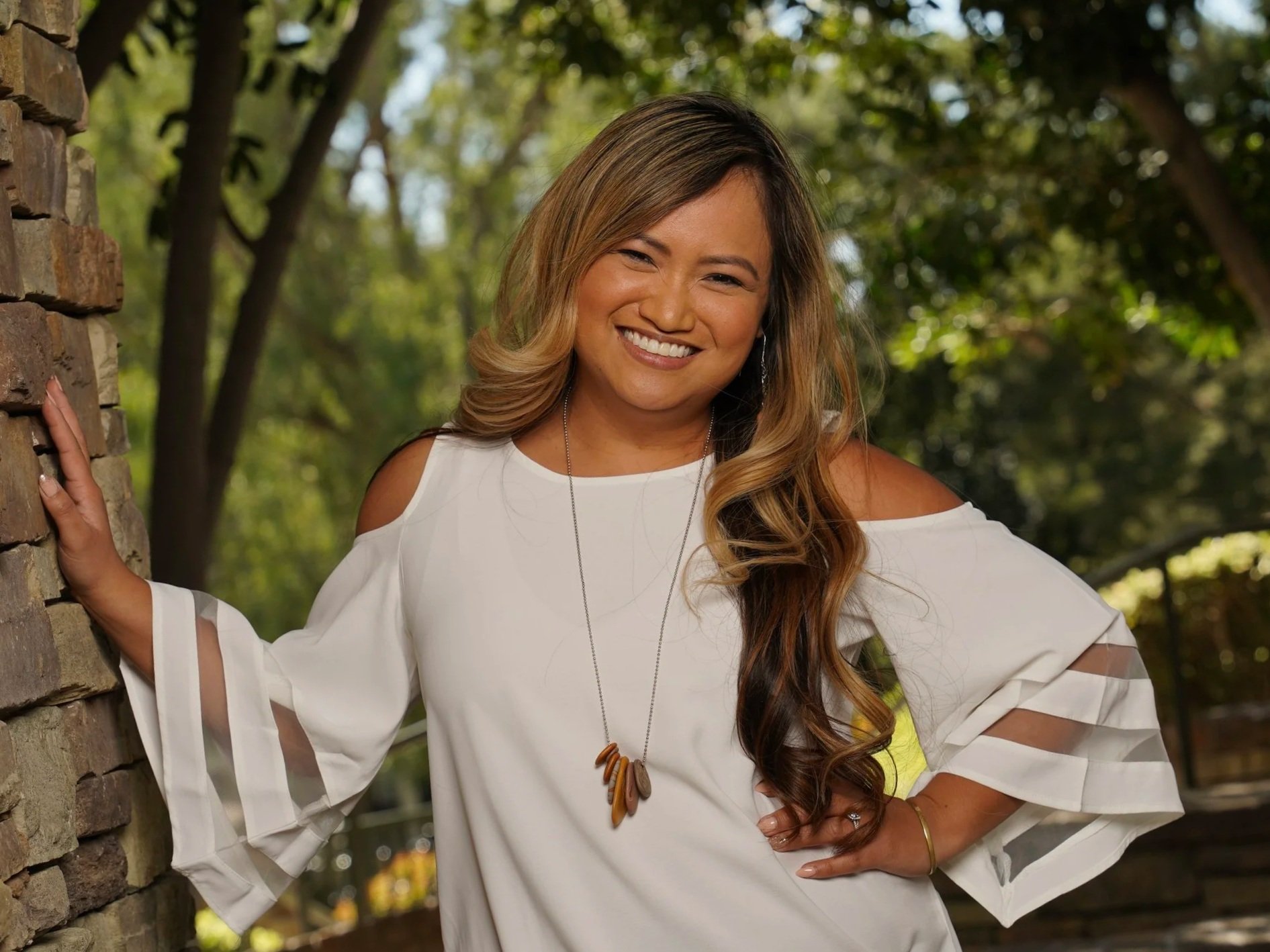Post-traumatic Fragmentation to Holistic Integration: Emma Rose’s Journey
Have you ever wondered how your deepest wounds could ever truly heal? Or questioned whether your relational patterns could ever actually change? Maybe you’ve felt caught between spiritual strength and emotional exhaustion — wanting to live with purpose and presence, but weighed down by the heartache of loss or just the daily stresses of life.
If so, you’re not alone. That tension — between faith and fragility, between calling and capacity — has defined much of my journey. And it’s what led to my part of the birth of Integrate You.
My journey towards Integrate You was anything but straight, and yet through all parts of the path I felt Jesus leading me, right next to me, healing me, and at times carrying me when I couldn’t take another step. Today, I want to share a few pieces of that journey with you.
🎁 At the end, you’ll find a special gift from me to you — a journaling tool I’ve used for over a decade and a resource we've incorporated into our spiritually directive, trauma-focused group therapy.
A Winding Path Toward Wholeness
I was born to a Filipina Christian mother who was raised Catholic and Spirit-filled, and a Navy dad who was the eldest of twelve and came from a devout Protestant family. As the eldest of four in my dad’s second-chance marriage — with older half-siblings and three younger brothers — I learned early on to care for others, lead, and strive.
I first believed in Jesus at six years old, thanks to a well-meaning but terrifying story about hell from my mom (which is a strategy I do not recommend!). But around age nine, God started to feel real to me — like a Father who could speak directly to me through His Word. I began journaling as if I were writing directly to Him, and sometimes I’d sense His responses to me. Even now, I go back and see moments where God was forming a relationship with me that would carry me through some very hard things. Journaling became my lifelong lifeline.
As a freshman in high school, I was the frosh cheerleading pep squad co-captain who vowed to be straight-edge in every way, on fire for Jesus. However, traumatic experiences from my early teenage years, on top of unprocessed wounds from harsh parenting and emotional unavailability from my younger years that can come from adults living with untreated PTSD and chronic stress and overwhelm, led to a season of seeking numbness from the shame and pain in all the wrong ways.
I remember one day, just breaking down and crying out to God. And I sensed Him wrap His arms around me. I remember the impression He left on my heart:
“Your life will not be defined by the shameful moments of your past.”
Within weeks, I was able to move in with my older sister and get a fresh start for a semester. God was already reweaving my story.
From People Science to Soul Care
My senior year of high school, I took my first psychology class — and I was hooked. I loved it. It combined my curiosity about people with a scientific lens. Even though no one taught it as a spiritually integrative field, I started to see the connections. Fun Fact: The Greek root of “psychology” (psukhē) means “breath, life, soul.” So even then, it felt like “soul care” to me.
After undergrad at Chapman University in psychology and leadership studies, I pursued my first career, becoming equipped in positive organizational psychology, management consulting, and organizational development at Claremont Graduate University. With God’s grace, I landed a job upon graduation with my MBA at a top global consultancy that created a life of constant travel while being married and owning a house in California before my thirties, all look successful “on paper.”
But inside, I felt pulled toward something deeper.
Fun Fact: The Greek root of “psychology” (psukhē) means “breath, life, soul.”
So even then, it felt like “soul care” to me.
The Shift: When God Rerouted My Career and My Healing
All those years of journaling with God, tuning into my body, mind, emotions, and spirit — it helped me stay grounded, cope through difficult seasons, and kept me connected to God. It created what I now call “integrative rhythms.” And those rhythms carried me through storms I didn’t see coming. It was helping me survive — but I sensed it was also preparing me for something more.
My first marriage ended painfully, marked by addiction, infidelity, and deep grief. It was devastating. But God carried me. He held me so closely in His arms of comfort, giving me strength each day. He also surrounded me with lifelong friends and loving family that kept me focused on keeping one foot in from the other.
He led me to a Christian therapist who didn't shame me for my faith but partnered with it. It was the first time I experienced what I now know the field of clinical psychology calls “spiritually integrative therapy.” With her help, I processed old childhood wounds, mourned marital losses, and started healing in a holistic way — emotionally, spiritually, and relationally. Over several years with her, I noticed my own interpersonal behaviors began to shift towards more courage and secure attachment across my relationships. I was no longer trying to cut people out of my life whenever I was too afraid to share with them how they had hurt me, leading to much deeper, honest, and healthier relationships.
During that time, I began sensing a shift in my calling. I couldn’t ignore it anymore — I was being drawn out of the corporate world and my comfort in organizational psychology and into what I called the “abyss” of clinical psychology. But I had a lot of resistance. The thought of going back to school again and spending the time and money to do so? No thanks.
It took years for God to shift my heart, but eventually, I said yes.
In 2020, I met Pastor Lisa in a church parking lot. I tried my first inner healing prayer session with her Sozo ministry after years of therapy. I was surprised by how effective it was — how I could recall trauma memories without being overwhelmed. It took effort to even remember the flashbacks that once haunted me. That moment was a sign: I knew I was being invited into a deep level of healing work.
I saw the value of both therapy and inner healing and looked forward to learning more about inner healing prayer as a spiritually integrative practice when I got into Fuller Seminary to start the doctoral Clinical Psychology and MDiv program a few months later.
When Healing and Heartbreak Coexist
Shortly after remarrying, my previous spouse ended his life. It shook me to my core. Then, towards the last week of my first year in the graduate program, my beloved mother-in-law passed suddenly. Overnight, my husband and I became full-time caregivers to my father-in-law. I had to slow down my program, my pace, and my expectations to make space for life and grief.
And through it all, I kept journaling with God. Checking in with my body, emotions, thoughts, and spirit. It became my sacred rhythm. A way to show up for myself and for others, while staying grounded in the presence of the Master Healer. It also helped me show up for my therapy clients-in-training with tenderness and honesty.
For my master’s thesis, I conducted a meta-analysis called “How Effective are Spiritual Interventions on PTSD: A Systematic Review and Meta-Analysis.” It was accepted at APA’s 2023 conference. But I realized — none of the studies captured the kind of spiritually directive work I had experienced.
So, with the help of my Fuller professors and Ps. Lisa, we designed a pilot study that would.
Beginnings of Integrate You
From 2023 – 2024, we ran that pilot study — integrating inner healing prayer with trauma-focused group therapy. The results were promising, and we presented them at APA 2024. (You can read more about that in our founding blog and our “Research” tab.)
From there, God kept opening doors.
We were invited into churches to share a collaborative model of care where therapists and spiritual directors or pastoral counselors work side-by-side. A model once reserved for the VA was now being introduced to local churches that wanted to learn about it.
In the summer of 2024, Pastor Lisa and I started dreaming about Integrate You as a nonprofit. We wanted to be eligible for grant funding to expand access to spiritually integrative healing, and support equipping churches with collaborative trauma-informed ministry models.
But before the dream could even take root, we faced another loss.
When Grief Tries to End the Mission
During the legal formation of Integrate You last winter, my younger brother Ciso tragically and unexpectedly passed away. He was 33.
It wrecked me. There were moments I didn’t think I had the strength to keep going. But I felt God — and Ciso — gently nudging me forward. Reminding me why this matters.
As a sweet confirmation, early this year (2025), our presentation was accepted at the Christian Association of Psychological Studies (CAPS) where we partnered with Dr. Kharma Parker on the topic: Where Is Jesus in the Room? Integrating Inner Healing Prayer with Trauma Therapy. (You can watch the full presentation under our “Research” tab.)
Moving Forward in Mission and Healing
Now, we’re prepping for this September, as we launch our first free community workshop series: ICU: Integrated Healing Through Being Seen & Sharing Your Story at Vineyard Church Laguna Niguel.
We’re also running two new cohorts of our trauma-focused, spiritually integrative and directive therapy groups for college students at Journey’s Counseling — the very place where I first experienced healing through Christian spiritually integrative therapy.
And, on September 7, a month from today, I’ll be running my very first half-marathon to raise funds for our upcoming groups and the Cystic Fibrosis Foundation with a dear friend.
Grief is still with me. But so is grace and deep, meaningful joy. And, it feels like something new is sprouting from some broken seeds.
Why Integrate You?
Because Jesus told us to love God with all our heart, soul, mind, and strength — and to love our neighbor as ourselves (Luke 10:27). That means giving God all of you — not just your spiritual self, but your physical, mental, emotional, and relational self too.
When we’re fragmented, it’s hard to love others well. But when we’re whole — when we’re integrated — we can show up to our lives with clarity, compassion, and courage for ourselves and others, despite what the world or our circumstances would want us to show up.
That’s my heart for Integrate You.
What does “Integrate You” mean to me?
Integrate You means focusing on the second part of Luke 10:27 – “loving your neighbor as yourself.” We want our beloved friends, family, and neighbors to be made whole, be well, and live in His peace and joy. We, each one of us, YOU deserve the same love for yourself as well.
🎁 Ready to Reconnect With God and Your Whole Self? The Triune Check-in is Yours
If you’ve made it this far, I’d love to bless you with something that’s carried me through more seasons than I can count.
🧠🫀🕊️ The Triune Check-in is a simple journaling tool to help you connect with your body, soul, and spirit — while inviting Jesus into every part of it. It’s a tool we use with our own trauma-focused healing groups.
What’s inside:
✅ A printable check-in tool for body, soul (mind/emotions), and spirit
✅ Guided reflection prompts based on Psalm 139 and inner healing prayer
You don’t have to figure it all out at once. You just have to begin.
Let this be one of your own steps toward more integration.
👇 Enter your email to get it delivered instantly to your inbox:



